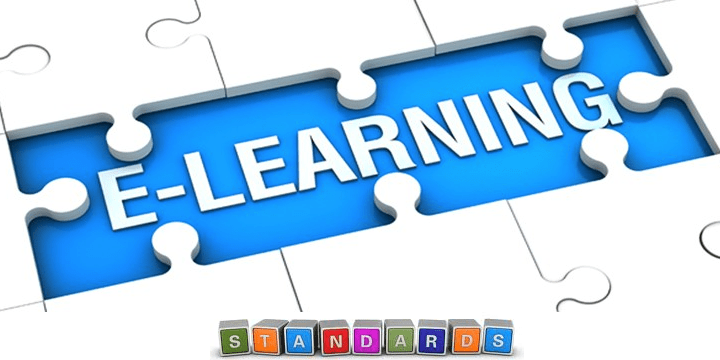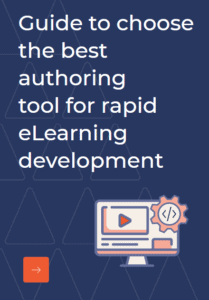In the ever growing field of eLearning, there is no shortage of authoring tools – Camtasia, Adobe Captivate, Lectora, Articulate Storyline - that you can use when developing your eLearning. Since these course content building tools adhere to eLearning standards, make sure that the Learning Management Systems (LMS) that you are using or are considering, is also compatible with the eLearning standards.
So how do you ensure a successful launch of your course? By ensuring that the LMS adheres to the following eLearning standards. In this article, we'll be focusing on SCORM, Tin Can API (also known as Experiential API or XAPI), and AICC PENS.
These eLearning standards are nothing but the common language that the eLearning courses and the LMS need. Through the standards, the courses can share information from the learners taking the course back to the LMS. Before you can upload your course content into a standard LMS, you need to set up reporting options, and this is where the eLearning standards come in. We'll discuss each in more detail.
Sharable Content Object Reference Model (or SCORM) is a broadly used standard that connects the content to the LMS. SCORM is what tells the LMS that a learner has completed a course or how much he or she has scored in the assessment. It is a widely used eLearning standard, and has two main versions—version 1.2 and version 2004. Version 1.2 is still the one that is mostly used, and includes metadata and content packaging.
SCORM provides interoperability, which can benefit you in two ways. If you produce eLearning content, you can integrate that content into the LMS for your clients. And if you produce an LMS, your clients can import content from different sources into the LMS. This simple integration of eLearning content with an LMS is made possible with SCORM. Therefore, it is paramount that you be SCORM conformant before selling eLearning products. This Advanced Distributed Learning (ADL) resource provides a comprehensive overview of SCORM. ADL provides a test suite for testing the SCORM compliance of courses locally. You can also test SCORM content with SCORM cloud.
SCORM was essentially designed to work in a desktop/laptop environment. This required users to be online and logged in to an LMS. With the advent of mobile learning, this is proving to be a challenge. Here are some specifics to consider before delivering SCORM on mobile.
SCORM can perform tasks such as tracking time, course completion, tracking pass/fail, and reporting. But it falls short on many aspects, such as offline tracking and informal learning. Tin Can API, which is an actually an extension of SCORM, can address issues that SCORM cannot.
Tin Can API is a simple and flexible standard that captures learning experiences that occurs outside of an LMS or a web browser. This means that it can track offline data or collect data about a range of information. For example, it can track learning activities like viewing a video, reading an article, participating in a webinar, serious games and simulations, mobile learning, blended learning, and so on. It can track learner performance across devices, be it a PC, mobile, or tablet. In other words, Tin Can API neither requires an LMS, unlike SCORM, nor an Internet connection to function.
While capturing learning activities, it generates simple statements in the Actor-Verb-Object format, such as "Sarah read an article". These statements are recorded in a Learning Record Store (LRS) - a repository of all the data. This useful primer on Tin Can provides a comprehensive overview. Here's another resource on the effectiveness of Tin Can.
Additionally, take a look at who's using the Tin Can API.
Aviation Industry Computer Based Training Committee (AICC) created a content update notification protocol called Package Exchange Notification Services (or PENS). PENS provides a method for the authoring tools to directly send course packages, through a single click, to an LMS. PENS allows publishing in one step, where the course authoring tool sends a message to the LMS that a package is available for collection. The LMS collects the package and processes the package. PENS’ USP is that it saves considerable time while publishing content.
With the increase in the usage of cloud technologies, PENS may get increased support in its adoption and implementation. It has been adopted in some authoring tools like Claro and Composica.
Read more about PENS here.
In a nutshell, all three eLearning standards have strengths that can work to your advantage. All you need to do is choose the standard that best fits your organizations' requirements.



